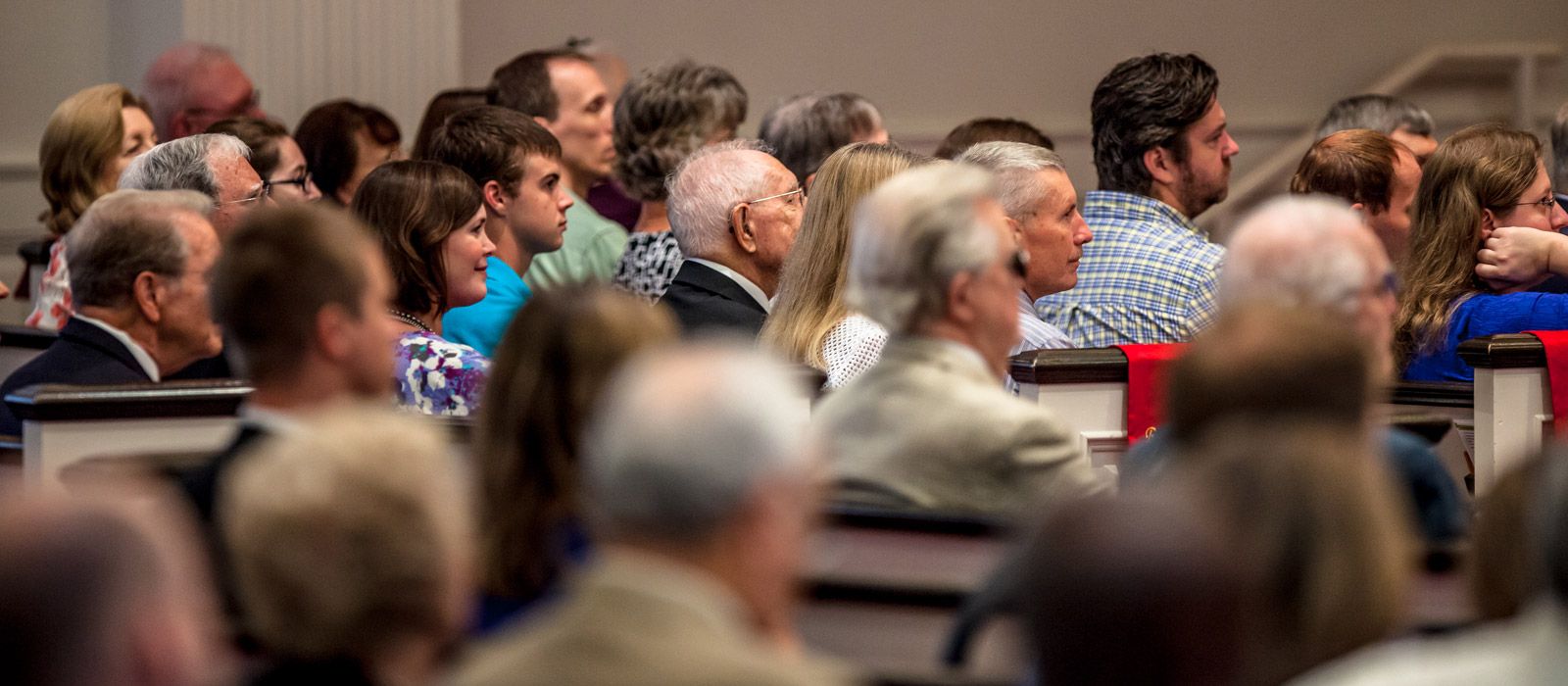WHAT WE BELIEVE – THE LORD’S DAY
The Lord’s Day is the day that Christians gather together and worship God, following the practice of churches from the time of the apostles in the New Testament (Acts 20:7; 1 Cor 16:2). It is a weekly event, intended to set the rhythm for all of life and give structure to our Christian commitment and discipleship. It is the day that ought to set the tone for all other days, when we give priority not only to personal devotion to Jesus, but to corporate worship with our brothers and sisters in Christ. It is the day that we consistently assemble together to encourage one another as we await the great Day of the Lord (Hebrews 10:25).
The Baptist Faith and Message 2000 states this concerning our understanding of the Lord’s Day: “The first day of the week is the Lord’s Day. It is a Christian institution for regular observance. It commemorates the resurrection of Christ from the dead and should include exercises of worship and spiritual devotion, both public and private. Activities on the Lord’s Day should be commensurate with the Christian’s conscience under the Lordship of Jesus Christ.”
The Lord’s Day is on Sunday. The early church met on the first day of the week, what we now call Sunday. This is why we call the day we prioritize corporate worship the Lord’s Day, and not the Sabbath. The Sabbath observance commanded in the Ten Commandments (Exod 20:8-11) focused on the seventh day of the week, the day we now call Saturday.
God gave Israel, the Old Testament people of God, the Sabbath command to especially mark them out as his people. Working six days and then resting on the seventh demonstrated that God was a holy God who makes a total claim on our lives, including our calendars and time. The reason for the Sabbath was grounded in what God did at creation when he rested on the seventh day (Gen 2:1-3). Therefore, the ultimate purpose of the Sabbath command was so that Israel would be like God and reflect a life of salvation before him and the world. It was about righteousness just as much as it was about rest (cf. Exod 31:12-17; Deut 5:12-15).
Unfortunately, Israel didn’t keep the Sabbath as God commanded. Ezekiel 20:10-26 tells us that Israel’s idolatry led to their profaning the Sabbath (not keeping it). Their lack of Sabbath-keeping was one of the primary reasons the nation went into exile, losing the Promised Land they were to find rest in, as the book of Nehemiah also points out (Neh 13:15-22). In light of this we see prophecies in Isaiah 66 and Ezekiel 46 about a new time with a new king when all kinds of people (and not just Israel) would find eternal rest in a new heavens and a new earth. This would happen when God sent a redeemer to bring his people into a new place where they could find their rest in him, just like he intended when he created us.
When we come to the New Testament we are presented with this new king, the one who leads us into eternal rest through his kingdom, and his name is Jesus Christ. Early in his ministry, after a confrontation with the Pharisees about his disciples picking grain on the Sabbath, Jesus declared himself, “Lord of the Sabbath” (Matt 12:8). Jesus is the one who will finally bring the blessings of the Sabbath not only to Israel, but to all who put their faith and trust in him as their Lord and Savior.
This is why believers in Christ are never told in the New Testament to observe the Sabbath (the only one of the Ten Commandments not repeated in the New Testament). Romans 14:5-6 and Colossians 2:16-17 emphasize that believers should not make Sabbath observances an issue of division in the church, but should allow believers (especially those from Jewish backgrounds) to follow the dictates of their consciences. This is because Jesus completely fulfills the Sabbath command on our behalf. The only way for us to keep the Sabbath is to believe in him. In Christ, when we are saved, we begin to experience our Sabbath rest, the rest God created us to experience in him (Matt 11:28-30; Heb 3:7-4:11).
So Christians have always worshipped on the first day of the week, the day when God created light, the day when Jesus Christ rose from the dead and brought new light to the world, and the day when Jesus first appeared to his disciples (John 20:19). Sunday is not a day of rest, it is a day of worship, a day when we are supposed to come together and to hear the word of God, sing as one body, build one another up, and together proclaim Jesus’ life, death, resurrection, and the rest we find in him until he comes. The Lord’s Day is the day we prioritize corporate worship, to the glory of our Lord of the Sabbath.
Praise God for the rest he gives us in Christ, and the blessing of worshipping him weekly until he comes or calls us home!
God bless,



